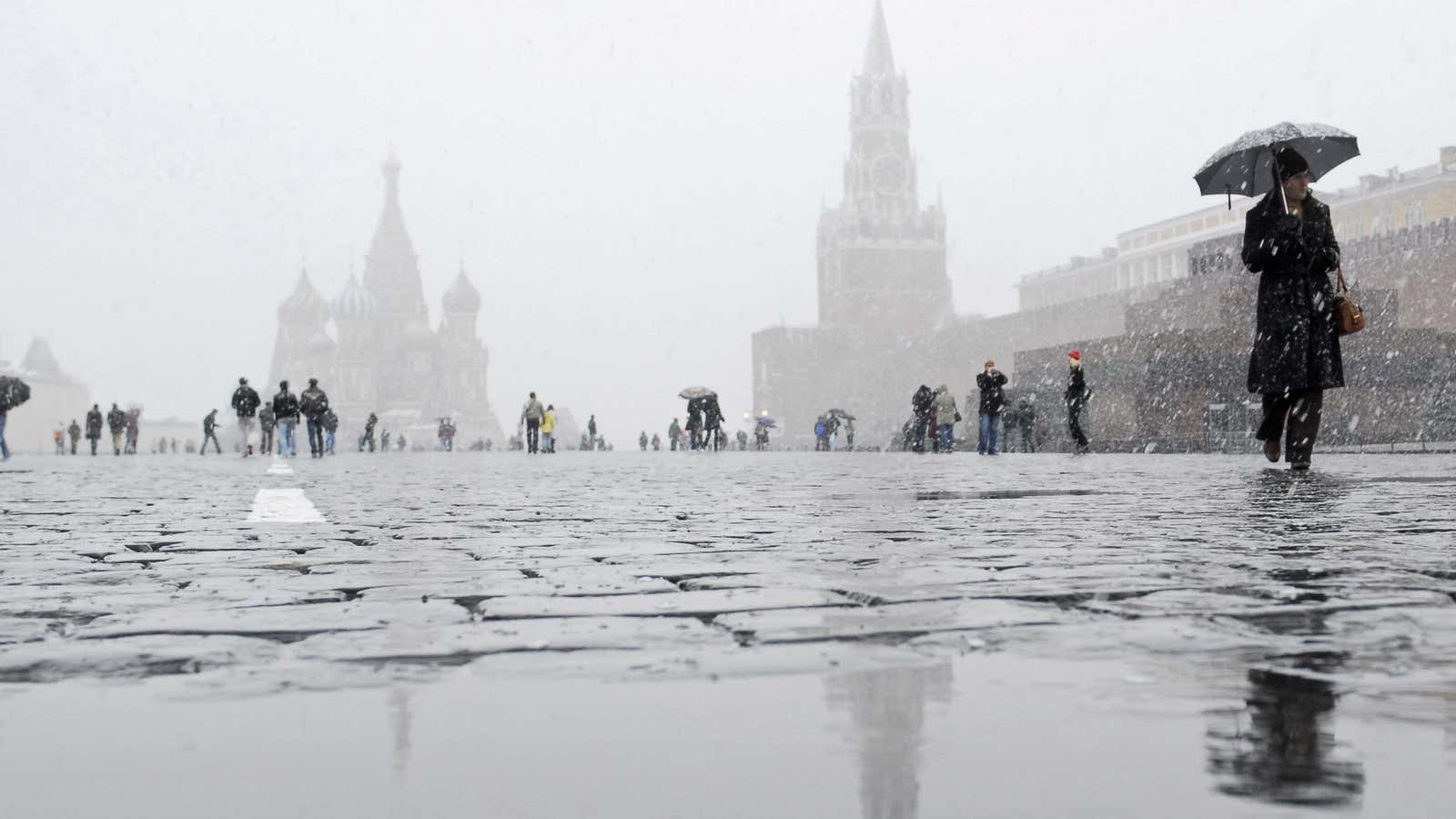As the US embarks upon a new and tense phase of relations with Russia, the UK has fresh reason to be thinking about Soviet-era politics. Formerly classified documents reveal that the British Foreign Office ignored some very clear red flags to accidentally employ a Soviet spy some 70 years ago.
David Floyd was secretary of Oxford University’s Communist Party as a college student, and was married to a fellow avowed communist. But he joined the Foreign Office without background security checks. Eventually, he confessed to passing secrets to Russian agents, but was never punished even after he was found out. Instead, he went on to a successful journalism career while the British government kept his dealings a secret—partly, it seems, to cover up their own mistakes and spare themselves embarrassment.
The tale of Floyd, who left his role as a diplomat to become communist affairs correspondent at The Daily Telegraph, was reported by The Sunday Times (paywall) after the Foreign Office released files in response to a freedom of information request filed by historian Jeff Hulbert. Floyd, who was fluent in Russian, worked as a translator in Moscow for the wartime UK military mission in 1944. He then joined the British embassy and went on to have embassy posts in Moscow, Prague, and Belgrade, all without any security background checks.
The Foreign Office only belatedly decided to research his background in 1950, when they discovered that Floyd had belonged to the Communist Party as a student and spent a week in prison after he was arrested at an anti-war protest.
This, however, did not lead to Floyd’s unveiling as a spy. His colleague in Prague wrote that Floyd was “a simple person who could not possibly conceal a double loyalty during all this time,” while the head of personnel decided that “The only evidence against him is of youthful indiscretion.”
The investigation was discarded, and Floyd remained in his post for another year, until he voluntarily confessed he was a spy in July 1951. He did so just weeks after the British diplomats Donald Maclean and Guy Burgess defected to the Soviet Union, which caused major tensions in intelligence co-operation between the US and UK.
Then-British foreign secretary, Herbert Morrison, reacted with despair. “Why must we employ such doubtfuls?” he wrote on a Foreign Office document shortly after Floyd’s espionage work was revealed.
“The last thing the Foreign Office and security services wanted in July 1951 was yet another exposure of one of their people working for the Russians,” Jonathan Haslam, professor in historical studies at Princeton, told The Sunday Times. “They would have gone to any lengths to keep this from the Americans. For the safety of the alliance this had to be wrapped up quickly and quietly.”
Despite Floyd’s confession, the director of public prosecutions decided there was insufficient evidence to bring criminal charges. This allowed Foreign Office officials to keep Floyd’s role—and their own failures—secret. “Looks as if Mr F should have been removed years ago,” wrote foreign secretary Morrison.
As well as protecting their own reputation, the British government seemed to have had a genuinely forgiving attitude towards Floyd. A draft Foreign Office memo read: “There is no evidence of [Floyd] having received any material reward from the Russians . . . We believe him now to be sincerely repentant and we consider that his action in confessing did him credit.”
There’s also a strong possibility that the Foreign Office kept Floyd’s betrayal secret to turn him into a double agent for the British government. “He is already in touch with MI5, who want to find him a job,” read one Foreign Office memo after Floyd had been uncovered and left his role as a diplomat.
Both The Telegraph’s then editor, Colin Coote, and deputy editor, Malcolm Muggeridge, had worked for MI6. Haslam told The Sunday Times the Foreign Office would likely have expected Floyd to use his role as a reporter to pass on tips to the government. “I don’t think they would just give him a free pass and find him a great job. It doesn’t work like that,” he said.
Much of the 300 documents released by the Foreign Office are partially redacted, and so the full story—of how much information Floyd passed to Russia, and whether he was of use to either side in his role as a reporter—is still a mystery. The extent of his double identity remains unknown. But clearly Floyd, who died in 1997 at age 83, was not the “simple person” he seemed.
